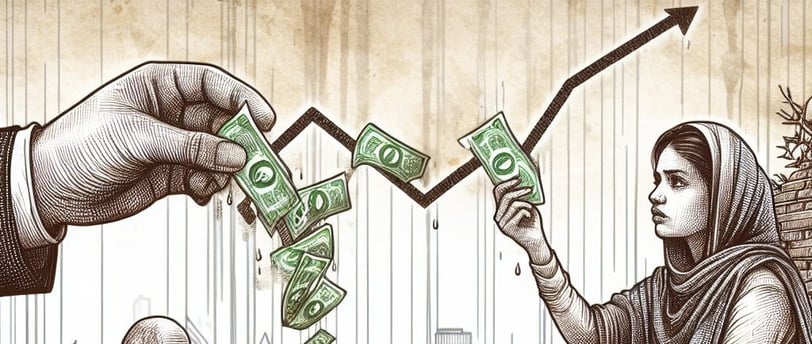What is Inflation? How Does Inflation Impact Your Life and Economy?
Explore the causes, consequences, and implications of inflation on daily life and the broader economy. Understand how supply-demand imbalances, monetary policy, and external shocks trigger inflation, and learn strategies for financial planning and investment to mitigate its effects. Dive into our comprehensive guide to grasp how inflation affects purchasing power, economic stability, and wealth distribution, and discover actionable insights for navigating inflationary periods.


Inflation is an economic phenomenon that has a significant impact on various aspects of our lives. It is characterized by a general increase in prices and a decrease in the purchasing power of money. Inflation affects everything from the cost of daily essentials to the value of real estate, making it essential for individuals and policymakers alike to understand its causes, consequences, and implications.
Causes of Inflation
There are several factors that can trigger inflation, and it is often the result of a combination of these factors:
1. Supply-Demand Imbalances
One of the primary causes of inflation is a mismatch between supply and demand. When demand for goods and services exceeds the available supply, prices tend to rise. This can occur due to various reasons, such as population growth, increased consumer spending, or disruptions in the supply chain.
2. Monetary Policy
Monetary policy plays a crucial role in shaping inflation. Central banks, such as the Federal Reserve in the United States, control the money supply and interest rates to manage inflation. By adjusting interest rates, central banks can influence borrowing costs and consumer spending, thereby impacting the overall level of inflation.
3. External Shocks
External shocks, such as natural disasters, political instability, or changes in global commodity prices, can also lead to inflation. These events disrupt the normal functioning of the economy, causing prices to rise due to supply disruptions or increased production costs.
Consequences of Inflation
Inflation has far-reaching consequences that affect both individuals and the overall economy:
1. Decreased Purchasing Power
As prices rise, the purchasing power of money decreases. This means that individuals can buy fewer goods and services with the same amount of money. It erodes the value of savings and reduces the standard of living for those on fixed incomes.
2. Uncertainty and Instability
High inflation rates create uncertainty and instability in the economy. Businesses find it challenging to plan for the future, as they struggle to predict costs and set prices. This can lead to reduced investment, lower economic growth, and a decline in overall prosperity.
3. Redistribution of Wealth
Inflation can lead to a redistribution of wealth within the society. Those who own assets that appreciate in value during inflation, such as real estate or stocks, can benefit. However, individuals with fixed incomes or savings in cash may experience a decline in their purchasing power.
Implications of Inflation
Understanding the implications of inflation is crucial for both policymakers and individuals:
1. Monetary Policy
Central banks closely monitor inflation rates to determine appropriate monetary policy measures. If inflation is rising too quickly, central banks may increase interest rates to curb spending and reduce inflationary pressures. Conversely, if inflation is low, central banks may lower interest rates to stimulate economic growth.
2. Financial Planning
Individuals need to consider inflation when making financial plans. Inflation erodes the value of savings over time, so it is important to invest in assets that can outpace inflation, such as stocks, real estate, or inflation-protected bonds. Additionally, individuals should account for inflation when setting long-term financial goals, such as retirement savings.
3. Investment Strategies
Inflation can significantly impact investment strategies. Some investments, such as stocks and real estate, tend to perform well during inflationary periods, as their values rise with prices. On the other hand, fixed-income investments, such as bonds, may suffer from eroding purchasing power. Diversifying investments and considering inflation hedging strategies can help mitigate the impact of inflation on investment portfolios.
Conclusion
Inflation is a complex economic phenomenon that affects various aspects of our lives. Understanding its causes, consequences, and implications is essential for both policymakers and individuals. By being aware of inflationary pressures, individuals can make informed financial decisions and policymakers can implement appropriate measures to maintain stability and promote economic growth.
